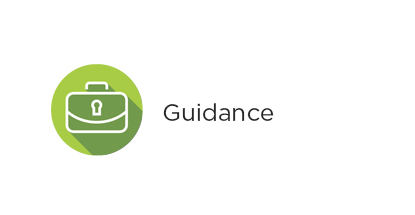
You’ve worked a long time as a practitioner and are now contemplating retirement from public practice. This article provides responses to some Frequently Asked Questions (FAQs).
For general questions about retirement as a CPA member please see FAQs about Your Retirement, which addresses membership dues, CPD, and post retirement part-time work or volunteering. In addition, KBASE COLLECTION – Retirement may also be useful to review.
- I am a partner in a multi-partner firm, whom should I notify when I retire from the firm?
To cancel your public practice license, you or your firm should complete Form 3C – Request for Cancellation of a Public Practice License and send the form electronically to CPABC’s public practice department. The effective date of cancellation should be the date when the practitioner has stopped practicing.
- I am a sole practitioner, whom should I notify when I close or sell my practice?
When you close or sell your practice, and are no longer signing off on engagements, you are no longer required to maintain your public practice license or firm registration. In addition, ensure you take down your website.
To cancel your public practice license complete Form 3C – Request for Cancellation of a Public Practice License and send the form electronically to CPABC’s public practice department. The effective date of cancellation should be the date that is the earlier of: the last day of professional liability insurance coverage; or the date the sole practitioner stops practicing.
- I am a sole practitioner or partner in a multi-partner CPA firm, and I am planning to retire from public practice soon. I am thinking of moving into consultancy after. Would I have to maintain my public practice license?
 Whether licensing is required will depend on the nature of the professional services you intend to offer as a consultant. If you plan to offer any “public accounting services” or “other regulated services” (ORS) you would be considered to be in public practice and you’d be required to be licensed and insured accordingly.
Whether licensing is required will depend on the nature of the professional services you intend to offer as a consultant. If you plan to offer any “public accounting services” or “other regulated services” (ORS) you would be considered to be in public practice and you’d be required to be licensed and insured accordingly.
“Public accounting services” are defined in CPABC Bylaw 100 as:
- performing an audit, review, or other assurance engagement governed by standards of professional practice published by CPA Canada or corresponding standards established in a jurisdiction outside Canada, or issuing an auditor’s report, a review engagement report, or another assurance report in accordance with such standards;
- issuing any other certification, declaration, opinion, or report with respect to the application of financial reporting and accounting standards published by CPA Canada or other Canadian standards published by CPA Canada, or corresponding standards established in a jurisdiction outside Canada; and
- performing a compilation engagement.
- providing an accounting service involving summarization, analysis, advice, counsel, or interpretation, other than an accounting service that is part of but incidental to the provider's primary occupation which is not accounting;
- providing a forensic accounting, financial investigation, or financial litigation support service;
- providing advice, counsel, or interpretation with respect to taxation matters;
- preparing a tax return or other statutory information filing; and
- any other services described in the regulations.
Note that members who continue to be engaged, at any time in the calendar year, in public practice, whether as employees or owners, will not qualify for a CPD exemption, regardless of their age or income threshold.
- I am a sole practitioner selling my practice, but I want to keep a couple clients. Would I have to maintain my public practice license?
Yes, no matter how many clients you have, you are required to have a public practice license in order to engage in public practice.
Depending on your current public practice licensing category, you might be able to amend the category to better suit your continuing service provision. Complete Form 3B: Request to Amend Category of Public Practice License to amend the licensing category.
- I am a sole practitioner, how do I prepare to sell my firm when I am looking to retire?
CPABC provides a free service for practitioners in the form of a website where practitioners can advertise to sell or buy a practice. Additional information on selling (and buying) a firm can be found in the KBASE COLLECTION – Buying or Selling a Firm.
- Can I cancel my professional liability insurance once I retire from public practice?
Once you retire and cease to be in public practice the CPABC Bylaw Regulations section 1301(5) notes the following with respect to maintaining insurance: “Members holding a public practice license must ensure that prior acts and omissions are covered by adequate professional liability insurance either through riders to an ongoing insurance policy or a separate discovery policy, for a minimum of six years after ceasing to be in public practice.” As such, there is a requirement to retain insurance until the six years run out. It might be prudent to contact your professional liability insurance provider to obtain information on how this extended coverage works and what the costs are for this type of insurance. Please note that this type of coverage is known as ‘discovery’, ‘tail’, or ‘extended reporting period’ insurance.
- What do I do with my files once I retire from public practice?
CPABC Code of Professional Conduct discusses retention of documentation and working papers in Rule 218. While a general guideline of 10 years is suggested as the minimum time period, some documentation may need to be retained indefinitely. After retirement this Rule continues to apply.
In addition to following Rule 218 with respect to the retention of documents and working papers, please ensure you also consider the following:
- Do you have the ability to access and review these documents in the future?
- Are you keeping the information in hard copy or soft copy format? Soft copy files might be difficult to open after several years if they require a current version of the software at that time.
- Are you keeping all information in the file, or are you separating client information from proprietary information and returning the client information to the client?
- Are you downgrading your office desktop to a laptop? After ensuring that relevant information is retained, how will you ensure that any confidential client information on the hard drive gets adequately erased or disposed of?
- Now that I am retired from public practice do I need to resign from CPABC?
No. You can still maintain your membership with CPABC and enjoy the benefits of membership. You may even qualify for certain dues waivers. However, if you were to decide to relinquish your CPA membership there are some important considerations. Before you resign your membership you should carefully consider the pros and cons of membership resignation or readmission.
Rate this Entry
Current rating: 0 yes votes, 1 no votes

